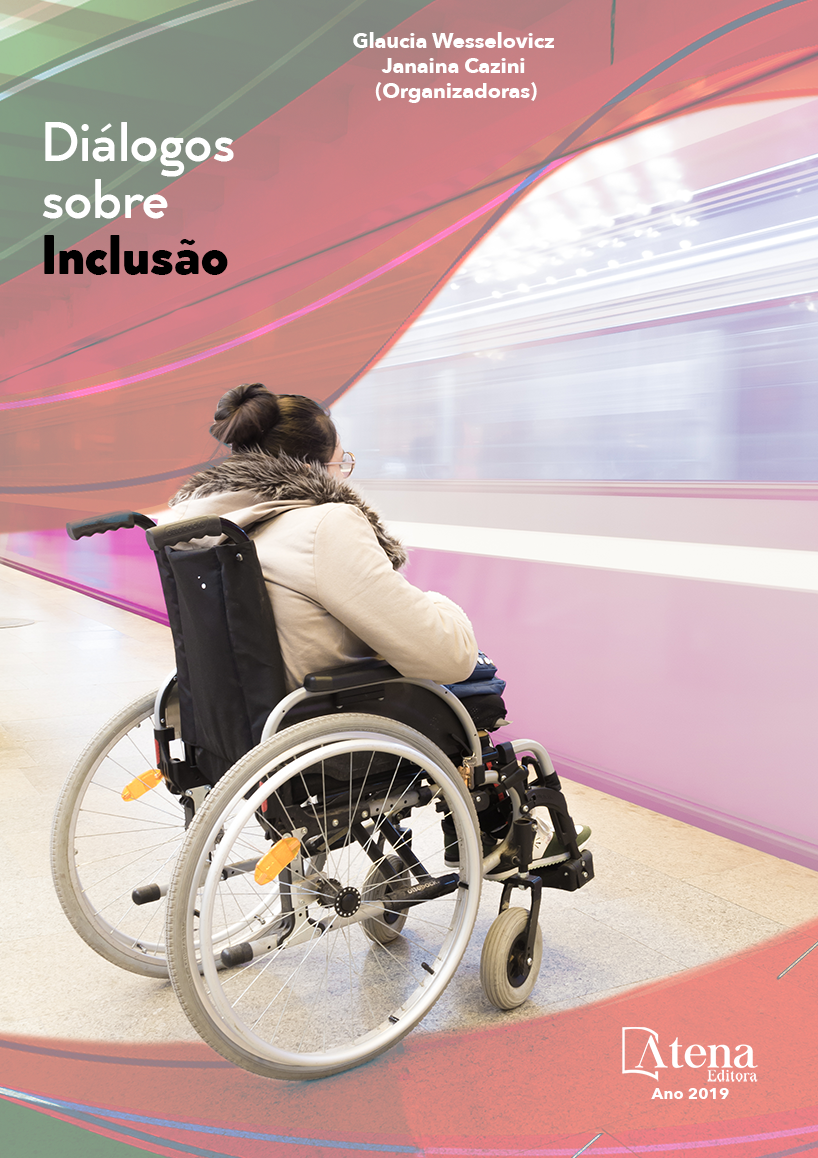
PROJEÇÃO CILÍNDRICA ORTOGONAL: UMA APRENDIZAGEM EM UM AMBIENTE VIRTUAL NA PERSPECTIVA DA EDUCAÇÃO INCLUSIVA PARA SURDOS
O processo de ensino e aprendizagem
quando se trata especificamente da Matemática,
apresenta diversos desafios, isto porque
estudos relacionados a área do ensino da
Matemática, demonstram a existência de uma
enorme lacuna em sua aprendizagem, presente
em toda a estrutura educacional, ou seja, são
constatados problemas crônicos em matemática
desde o ensino fundamental até a universidade.
Se os alunos ouvintes já possuem dificuldade
no aprendizado, a preocupação é ainda maior
em relação aos alunos surdos, onde pesquisas
demonstram suas diversas dificuldades em
compreender os conteúdos matemáticos pela
falta de recursos adequados. Este estudo
trata de um tema específico da Geometria
Descritiva, a Projeção Cilíndrica Ortogonal
(PCO), assunto pouco tratado no ensino
fundamental e médio, contudo, está presente
em cursos como arquitetura e engenharias,
pertencentes às áreas das exatas. Devido
às dificuldades relacionadas a este conceito,
foram criados Objetos de Aprendizagem (OA)
acessíveis, sendo organizados na forma de
um curso e inseridos em um ambiente virtual
denominado MooBi (Ambiente Virtual Bilíngue),
desenvolvido para que também atendesse às
necessidades do público surdo. Deste modo,
o estudo desenvolvido buscou verificar de
que maneira os OAs acessíveis contribuíram
para a aprendizagem desses alunos sobre o
tema PCO. Os resultados encontrados foram
significativamente satisfatórios, contudo, sabese
que ainda existe um vasto campo a ser
pesquisado.
PROJEÇÃO CILÍNDRICA ORTOGONAL: UMA APRENDIZAGEM EM UM AMBIENTE VIRTUAL NA PERSPECTIVA DA EDUCAÇÃO INCLUSIVA PARA SURDOS
-
DOI: 10.22533/at.ed.62019280516
-
Palavras-chave: Objetos de Aprendizagem, Projeção Cilíndrica Ortogonal, Surdos, Ambiente Virtual Bilíngue - MooBi.
-
Keywords: The process of teaching and learning when confronted with Mathematics, in several moments, when it comes to studies aimed at the area of Mathematics teaching, demonstrate the existence of a huge gap in their learning, present in an entire educational structure, chronic problems in mathematics are found from elementary school to university. The group of students has difficulty learning, it is a bigger problem in relation to deaf students, where their research is more difficult to understand the Diálogos sobre Inclusão Capítulo 16 153 mathematical resources due to the lack of adequate resources. This study deals with a specific theme of Descriptive Geometry, an Orthogonal Cylindrical Projection (OCP), related to elementary and high school education, which is still present in the Architecture and Geosciences Courses, belonging to the exact areas. Due to the difficulties related to this concept, accessible Learning Objects (LO) were created, being organized in the form of a course and inserted in a virtual environment called MooBi (Virtual Bilingual Environment), developed to also meet the needs of the deaf public. Thus, the study developed sought to verify how accessible LOs contributed to the learning of these students on the OCP theme. The results found were significantly satisfactory, however, it is known that there is still a vast field to be researched. KEYWORDS: Learning Objects, Orthogonal Cylindrical
-
Abstract:
The process of teaching and
learning when confronted with Mathematics,
in several moments, when it comes to studies
aimed at the area of Mathematics teaching,
demonstrate the existence of a huge gap in
their learning, present in an entire educational
structure, chronic problems in mathematics are
found from elementary school to university. The
group of students has difficulty learning, it is a
bigger problem in relation to deaf students, where
their research is more difficult to understand the
Diálogos sobre Inclusão Capítulo 16 153
mathematical resources due to the lack of adequate resources. This study deals with
a specific theme of Descriptive Geometry, an Orthogonal Cylindrical Projection (OCP),
related to elementary and high school education, which is still present in the Architecture
and Geosciences Courses, belonging to the exact areas. Due to the difficulties related
to this concept, accessible Learning Objects (LO) were created, being organized in the
form of a course and inserted in a virtual environment called MooBi (Virtual Bilingual
Environment), developed to also meet the needs of the deaf public. Thus, the study
developed sought to verify how accessible LOs contributed to the learning of these
students on the OCP theme. The results found were significantly satisfactory, however,
it is known that there is still a vast field to be researched.
-
Número de páginas: 15
- Natana Souza da Rosa
- Vania Ribas Ulbricht


